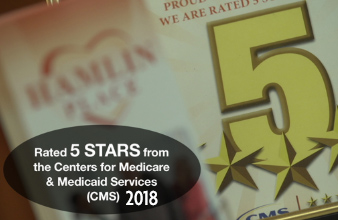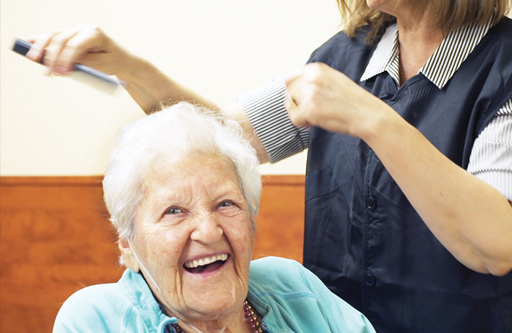
The Truth About Senior Moments
We all have our moments when the word stays paralyzed in our throat. We can see the face, hear the voice, but we struggle to name who it is we have in our mind. Most of us have dismissed such moments as senior moments. After all, we reason, they are part of aging. However, a new study that emerged from Chicago recently suggests otherwise. Senior moments might not be as innocuous as previously thought. The research suggests all have our moments when the word stays paralyzed in our throat. We can see the face, hear the voice, but we struggle to name who it is we have in our mind. Most of us have dismissed such moments as senior moments. After all, we reason, they are part of aging. However, a new study that emerged from Chicago recently suggests otherwise. Senior moments might not be as innocuous as previously thought. The research indicates that in a disturbing number of cases, embarrassing senior moments such as forgetting a word, name, or recent conversation are really hallmarks and signs of Alzheimer’s disease.
Senior Moments

After performing autopsies on the brains of 134 older people who had appeared to be normal except for some moments of forgetfulness, Chicago scientists have found that one-third of the participants had brains riddled with plagues, waxy protein clumps and scarred tissues that were all signs of Alzheimer’s disease. Their senior moments were pathological. Even though their brains showed marked deterioration similar to those who succumbed to Alzheimer’s, these participants had been able to lead healthy functional lives; that is, they were able to take care of personal, household, social, and daily living needs. Their ability to do so has prompted the inevitable question: why is that that some people are totally incapacitated and indisposed by brain deterioration. In contrast, others (who had similar levels of decline in the brain) can function normally?
Dr. David Bennett, an Alzheimer’s researcher at Rush University Medical Center, acknowledges that much can be gleaned from this discrepancy: ”There’s something about these people that allows them to have large amounts of pathology without obvious memory problems. We need to understand why that is so.” His research suggests that certain factors seem to prevent us from being incapacitated in our daily lives despite the buildup of plaques and protein in our brains. These factors include a) high levels of education and b) feelings of social connectedness.
Mentally stimulating tasks such as learning a new skill or language, doing crossword puzzles, reading, and writing all help to diminish incidents of senior moments and prevent Alzheimer’s by enabling the brain to compensate for the incapacitating elements of the disease. Just as moderate aerobic activity( like running or speed walking) can build arterial reserves that prevent heart attacks, so mind building activities can create a “neural reserve” that enables people to tolerate Alzheimer’s-induced brain deterioration without succumbing to dementia.
The next question we need to ask then is, what activities can we cultivate to preserve our neural reserves or senior moments?
- In the famous Nun’s Study, researchers noted that the sisters who had a dense linguistic style in their early journal entries (which demonstrated an ability to manipulate complex ideas and images within a single sentence) were the most untouched by Alzheimer’s. Writing is an activity that demands a correlation between the right and left hemispheres of the brain; translating emotions and ideas into words requires the bilateral engagement of both hemispheres, mind, and senses. So, by all means, write—and write every day. Make it as much daily activity as exercise. Write from your mind; write from your heart and write from your gut. Don’t worry about what others think. Just write!
- Learn a new skill or language. Assimilating something new, especially something that is unfamiliar terrain, helps the brain to build further neural reserves. The language can be in the realm of music or computer; as a matter of fact, so much has developed these days in the area of programming that the whole online arena of systems protocol and programs has literally opened up all kinds of possibilities for growth.
- Learn to play a new instrument— another example of assimilating new terrain. When a friend attended a recent violin concert where their grandson( age 4) performed the repertoire with the members of his Suzuki school, they were impressed by an elderly gentleman who stood up with the children ( ranging in age from 3 to 17) and performed his solo piece. The applause was thunderous. On- senior moments like this inspire us to step outside our comfort zone and work through whatever it takes to learn a new skill.
- Travel widely and far. By the same token, traveling to different cultures can enhance the activity of brain functions. When my partner and I traveled to France and Italy last fall, we could feel the neurotransmitters firing in our brains—especially in Italy. We had to learn how to ask for food, time, directions to the subway station, to the washroom. The city became a physical puzzle we had to tame and nowhere was this more evident than in Venice, where safely ensconced in the ferry that carried us to the Piazza del San Marco, we struck up conversations with a gentleman from Latvia, a lady from Capri and a couple from Korea. We were worlds apart linguistically—but somehow, we managed to understand each other quite well. This was a situation when eyes, hand, and gestures spoke more than words!
- Exercise daily. Not only does aerobic and cardiovascular activity strengthen our muscles, joints, and bones, but it also improves brain tissue density in older adults. During the normal human aging process, the average brain loses 15% of the cerebral cortex and 25% of white brain matter, a loss that is linked directly to reduced cognitive performance. Aerobic and cardiovascular exercises benefit the areas in the brain that are most susceptible to the ravages of aging.
- Last but not least, bless all you encounter and love what you do; forget details that are not essential to your spiritual growth, such as your senior moments. Leaving your ego-self has the same dynamics as learning a new language. Know that we are shadows and that our real home lies elsewhere; this knowledge will catapult us into learning the language of the spirit. That is a disturbing number of cases, embarrassing senior moments such as forgetting a word, name, or recent conversation are really hallmarks, and signs of Alzheimer’s disease.












